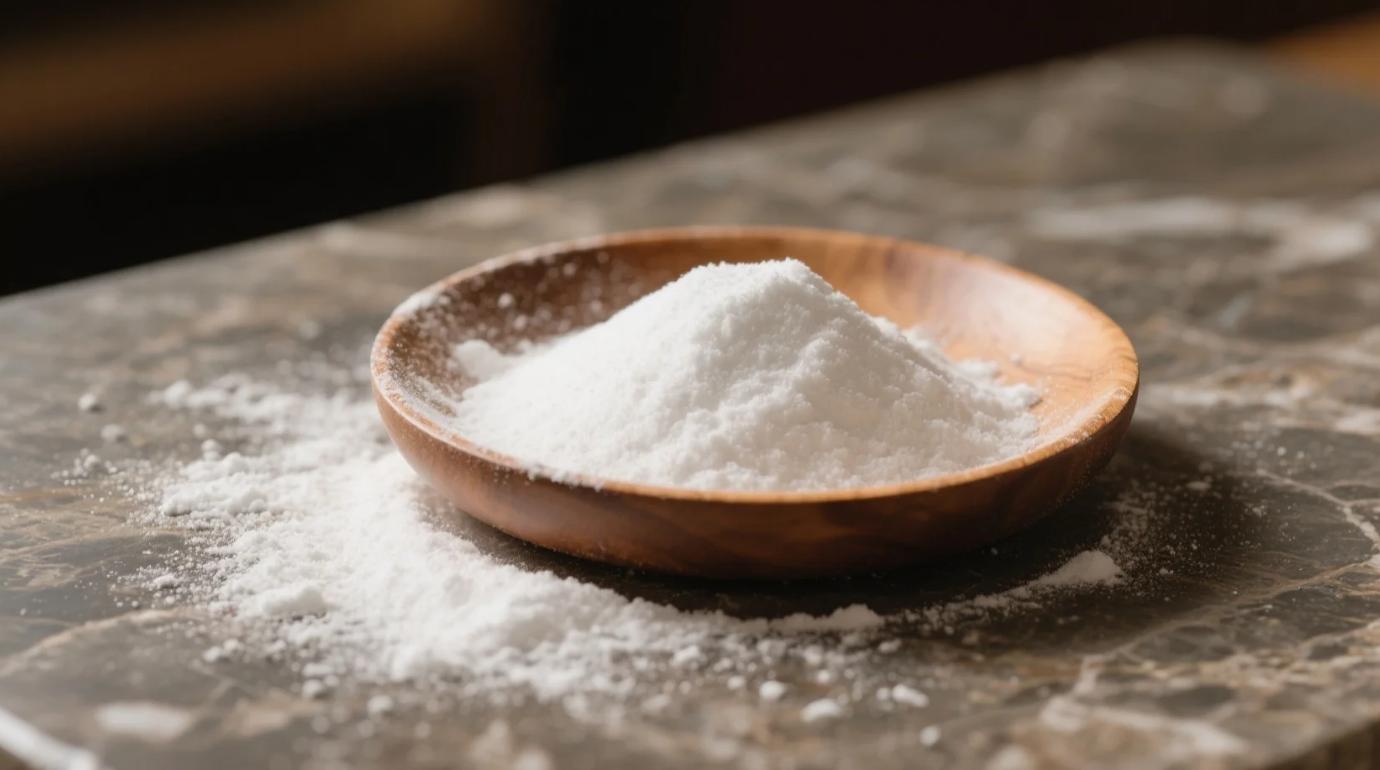You bite into a sun-ripened peach and taste sweetness—that’s dextrose working with fructose in nature’s perfect package. But when you see “organic dextrose powder” on a label, is it still natural? Let’s cut through the chemistry confusion.
Dextrose Unwrapped: From Fields to Your Kitchen
- What it is: A simple sugar (glucose) found in every living plant and animal.
- Natural sources: Grapes, honey, corn, wheat, and even human blood (your body makes it daily).
- How organic powder is made:
- Sustainably farmed corn/wheat → soaked in water
- Natural enzymes break starch into glucose chains
- Purified via carbon filtration (no solvents)
- Crystalized into powder
Key fact: Dextrose is identical whether from a peach or powder—same molecular structure (C₆H₁₂O₆).
Natural vs. “Processed”: The Gray Zone Debunked
| Factor | Organic Dextrose Powder | Table Sugar (Sucrose) |
|---|---|---|
| Origin | Fermented from plants | Extracted from cane/beets |
| Processing | Water + enzymes only | Often bleached with sulfur |
| Chemical changes | None (glucose remains glucose) | Sucrose split into glucose + fructose |
| Body recognition | Directly used as energy | Requires digestion steps |
Analogy:
- Squeezing oranges → orange juice = “processed” but natural
- Extracting dextrose from corn → same principle
3 Tests to Spot Truly Natural Dextrose
- Certification Check:
- USDA Organic/EU Bio-Siegel: Guarantees non-GMO crops + pesticide-free processing.
- Non-organic dextrose: May contain glyphosate residues (up to 13ppb in conventional corn).
- Solvent-Free Proof:
- Authentic organic dextrose uses food-grade enzymes (e.g., amylase from fungi)—not hexane/acetone.
- Traceability:
- Batch codes should trace back to specific farms (e.g., “Organic corn from Bavaria, 2024 harvest”).
Why Your Cells Don’t Care About “Processed”
- Metabolic reality:
- Dextrose from an apple → enters blood as glucose in 30 mins.
- Organic dextrose powder → enters blood as glucose in 10 mins (no digestion needed).
- Emergency use: Hospitals inject dextrose IV to save hypoglycemic patients—precisely because it’s biologically identical to natural glucose.
The Organic Advantage Beyond Purity
Conventional dextrose production often involves:
- GMO crops: 92% of U.S. corn is genetically modified.
- Acid hydrolysis: Hydrochloric/sulfuric acids used to break starch → residual heavy metals.
- Bleaching: Activated charcoal from non-food sources.
Organic certification bans all three—relying on enzymatic hydrolysis and plant-based filtration.
When “Natural” Matters: 3 Practical Uses
- Athletic fuel:
- Organic dextrose + sea salt in water = faster electrolyte absorption than sports drinks (studies show 17% better hydration).
- Fermentation control:
- Homebrewers use it because yeast metabolizes dextrose cleaner than table sugar → less off-flavors.
- Hypoglycemia rescue:
- 1 tsp under the tongue reverses blood sugar crashes faster than juice (no fiber to slow absorption).
The Taste Test: Nature vs. Lab
- Organic dextrose powder: Mild sweetness (74% of sucrose), no aftertaste.
- Artificial glucose analogs:
- Crystalline fructose (chemically altered) → metallic tinge
- High-fructose corn syrup → requires synthetic catalysts
Final Verdict:
Yes, dextrose is a natural product—whether in fruits or powdered form. Organic certification ensures it stays true to nature’s blueprint, free from synthetic contaminants. While all dextrose shares the same biological identity, choosing organic guarantees ethical farming and clean processing.
“Your mitochondria see dextrose as dextrose—whether from a raisin or a jar.”
Stop overcomplicating sugars. Organic dextrose powder is nature’s energy currency, purified for precision. Keep it in your pantry for workouts, baking, or blood sugar balance—it’s the cleanest fuel your cells recognize. (Your taste buds won’t know it’s not peach juice.)
Recommended Product
Organic Dextrose Powder
Natural Energy Source for Food, Beverage, Pharma & Sports Nutrition

